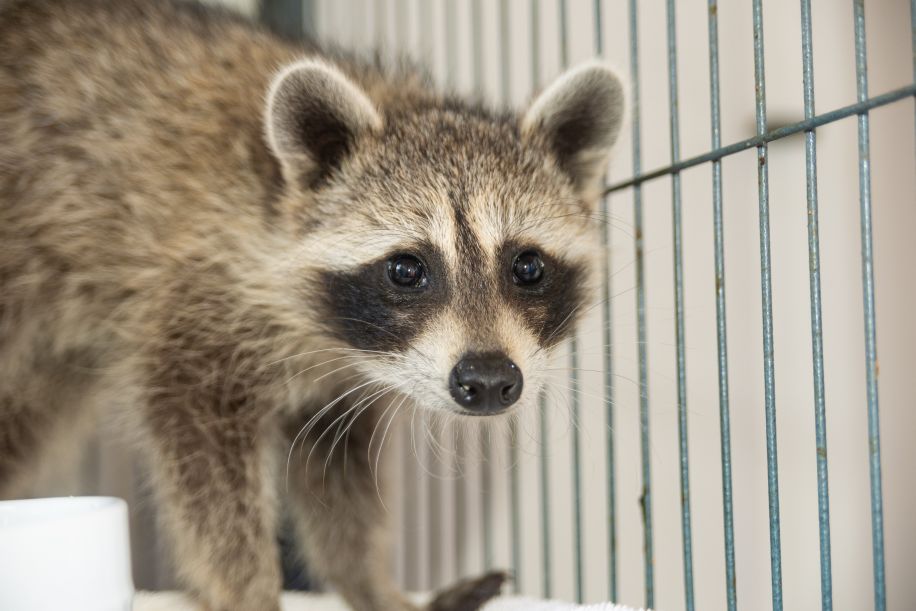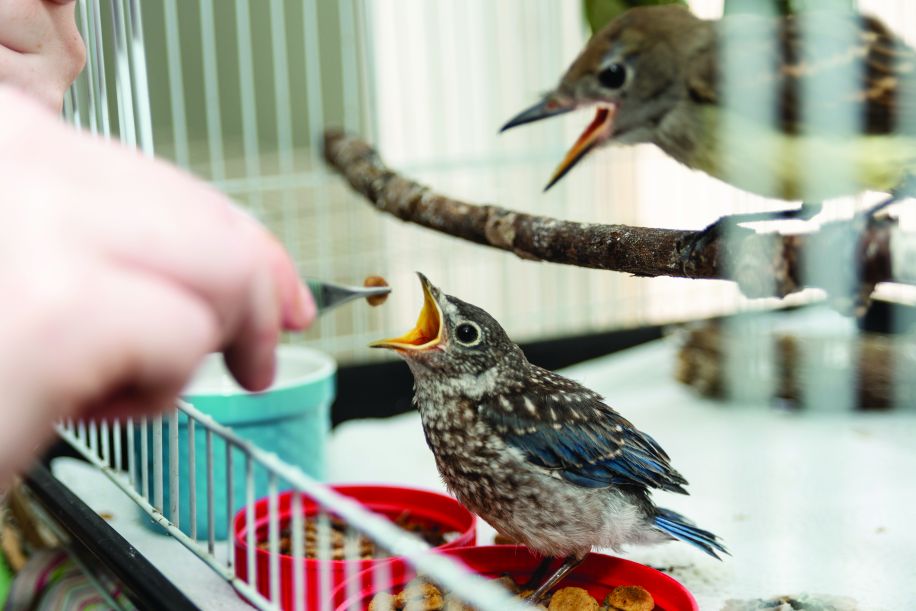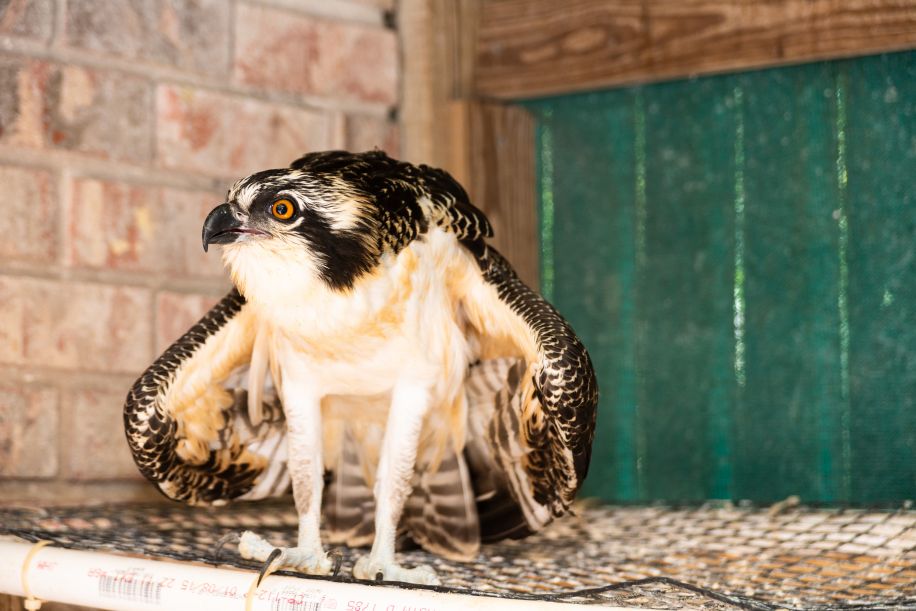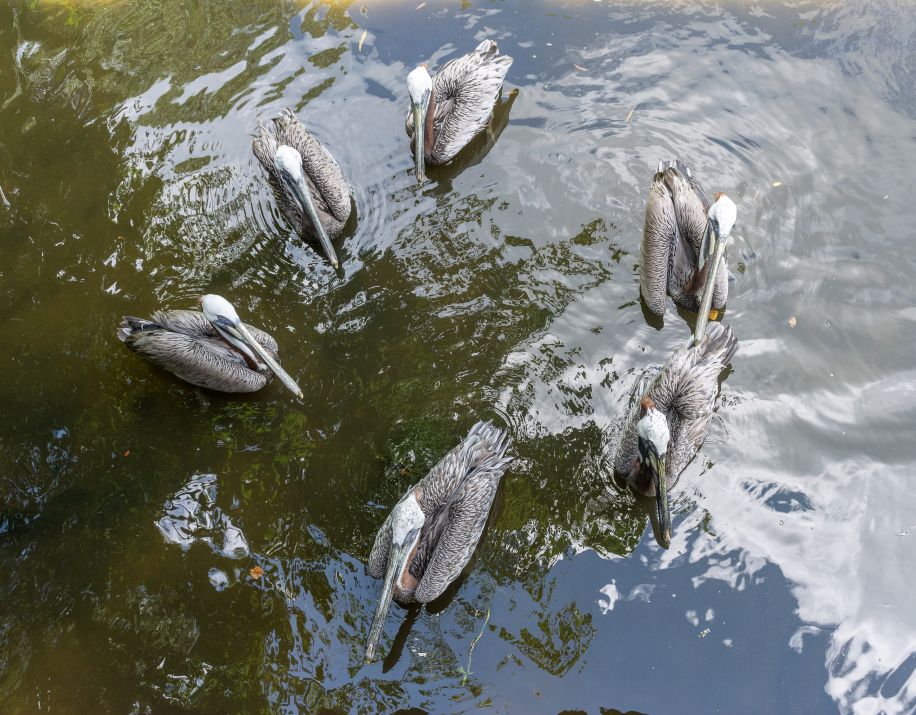Just past the Global Learning Academy on North S Street, tucked away beneath a canopy of trees and snuggled between lush greenery is a modest, one-story brick building. Were it not for the sign proudly centered on the front lawn, it would be easy to mistake this building for a residential lot. It looks like a home and in truth, it is. For hundreds of animals including owls, hawks, eagles, turtles, opossums, raccoons, and skunks this is home – if not forever, then just long enough to get back on their feet.
For 36 years the Wildlife Sanctuary of Northwest Florida has run their operations out of this small building. A network of indoor/outdoor enclosures houses a wide variety of indigenous species who are either recovering from some sort of trauma or ineligible for re-release into the wild. A crew comprised of a handful of employees and volunteers care for the animals’ every needs. This dedicated group has made it their mission not only to treat injured animals, but also to tirelessly advocate for them through educational programs and outreach.
The Wildlife Sanctuary of Northwest Florida is a non-profit organization with permits from the Florida Fish and Wildlife and the US Fish and Wildlife organizations which allows them to operate on the state and federal level. Additionally, they help put on the State Conference for Wildlife Rehabilitators in south Florida every year.
The sanctuary’s motto is “Receive, Rehab, Release,” which is highly appropriate given that it boasts a 70 to 75% release rate. That is a very high percentage considering that they take in anywhere between 3,000 to 4,000 animals annually. The types of animals they care for varies greatly from season to season.
“There are more species of birds than mammals but we do any native wildlife that are injured or orphaned. The spring and summer are the busiest times for us due to more babies being born in those seasons. Of course, hurricanes, tropical storms and floods create many more problems for animals so we are quite busy with intakes when the weather is difficult,” said Dorothy Kaufmann, the sanctuary director. But who is the hardest hit? Who always gets the short end of the stick?
“Babies…baby rabbits, baby songbirds, baby squirrels, baby opossums, baby skunks, baby turtles, baby armadillos, etc,” said Kaufmann.
The sanctuary works in tandem with veterinarian Dr. Tommy Knight from Westside Animal Hospital who volunteers his time on a case by case basis, but otherwise they treat the smaller, simpler injuries themselves. Suffice to say, this crew has its hands full. Animals come in with a litany of problems ranging from broken bones and trauma to intoxication and bacterial infections
“A lot of times it will be the juvenile birds—particularly eagles—that get blown out of a nest with storms and they’ll have fractures or that type of thing. Or they can’t get back into the nest so they go to rehab. Some of them can get toxins feeding on dead prey. Eagles are pretty much scavengers. Sometimes in terms of mating behavior there’s fighting and that sort of thing,” said Dr. Knight.
The biggest culprit, according to the site director Dorothy Kaufmann is us.
“Environmental changes and trying to co-exist with people seem to be a challenge. We are all sharing the same space, so we have yards and pets, we have roads and cars, we have boats and fishing gear, we use chemicals that deter pests that sometimes affect other animals, we remove trees and bushes that are sometimes their habitat. Co-existing seems to be a challenge at times,” she said.
The good news is, there’s a lot we can do to help. Donations go a long way to maintain their operations. Tax deductible monetary contributions made through Paypal are one way, but the sanctuary’s website also offers a long list of items that can be donated as well. This list includes things like food for the animals such as berries, vegetables, crickets, and meal worms, and more practical household items such as tissues, paper towels, and latex gloves. Any and all of these things support the cost of the sanctuary’s daily operations and keep all of their animals well cared for.
Prevention, however, remains one of the best methods to keep our animal friends out of harm’s way, which is why Kaufmann and her crew go to such great lengths to educate the public. The more we know about how to better coexist with wildlife, the fewer accidents they will face. Furthermore, there are many misconceptions about caring for wildlife that Kaufmann and Dr. Knight would like to clear up.
“You can successfully put birds back in their nest. The only birds with a keen sense of smell are vultures, so it’s just an old wives’ tale that momma bird won’t take the baby back if you touch it. You can create a make-shift basket to put baby squirrel back up in the tree even if the nest falls.
Loons on the beach look like a large duck and often sit on the shoreline. They really can’t walk well because their legs sit much closer to the back end of their body and the legs bend differently so they can swim better. This often makes them look like they have broken legs. Gently encouraging them back into the water if people are concerned they are hurt is fine but be very careful, they spear fish for a living so the beak is very sharp,” said Kaufmann.
Kaufmann also added that baby birds should never be fed milk or bread. “Never try to feed any bird or mammal if it is cold. It’s best to put the animal in a box and cover it, then transport to a licensed rehabilitator as soon as possible,” she said.
Dr. Knight echoed these sentiments and added, “If you find a fawn that’s by itself and people think that it’s abandoned, a lot of times the mother is waiting around. Sometimes it’s best to just leave them alone. But if you come across any birds of prey, it’s best to call the FWC and let them guide you on what to do. Don’t try to handle it yourself. They’re trained. They do a really good job at the Wildlife Sanctuary. They couldn’t do it without the public’s help finding things and notifying them but going through the proper channels is always the best way to handle it.”
The Wildlife Sanctuary of Northwest Florida is open seven days a week from 8 am to 5 pm to drop off injured wildlife. They are open for visitations Wednesday through Saturday from 12 to 3:30 pm. If you have any questions, would like more information, or would like to make a donation please visit their website at www.pensacolawildlife.com or call them at 850-433-9453.



